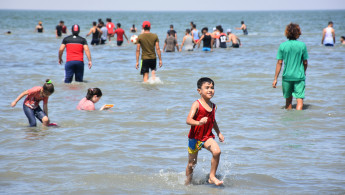Can Iraq finally realise its potential for tourism?
This April, the Iraqi Ministry of Culture, Tourism and Antiquities allocated about $78 million to repair its heritage sites and improve the infrastructure around them, particularly the ancient city of Babylon. This, the ministry hopes will attract more tourists to these famous, but long neglected world heritage sites.
"As long as the security situation is stable, these allocations contribute to an increase of tourists, as Iraq is classified as a tourist country in terms of nature, history, religions and many other things," said one Iraqi official.
Iraq has made many attempts in recent decades to build-up its tourist industry and enable it to reach its full potential. Politics and the various conflicts that have plagued the ancient nation invariably prevented these projects from ever getting very far off the ground.
"Iraq, with its suspicion of foreigners and cameras – taking a picture of Babylon or Baghdad requires a police permit – inadvertently has wiped itself out of the tourist guidebooks," noted AP in 1963.
In 1967, Iraq abolished tourist visa fees and also made plans for issuing visas at its borders for tourists from countries who had no diplomatic relations with Baghdad in a clear bid to draw more tourists. According to statistics from the time Iraq was visited by 485,192 foreign tourists in 1967, up from 400,164 from the previous year and from 360,532 in 1965.
In the late 1970s, after the country began developing and modernising rapidly as a result of the oil boom, Iraq's usually strained relations with its neighbours temporarily improved. It signed the Algiers Agreement with the Shah's Iran in March 1975 and relations improved substantially until the Iranian Revolution four years later.
 |
|
| A vintage photograph of the Basalt lion in Iraq's Babylon in 1932 [Sepia Times/UIG via Getty Images] |
 |
Iraq is classified as a tourist country in terms of nature, history, religions and many other things |  |
During this time, Baghdad made a serious effort to attract more tourists by building up its tourism infrastructure with new hotels and marketing.
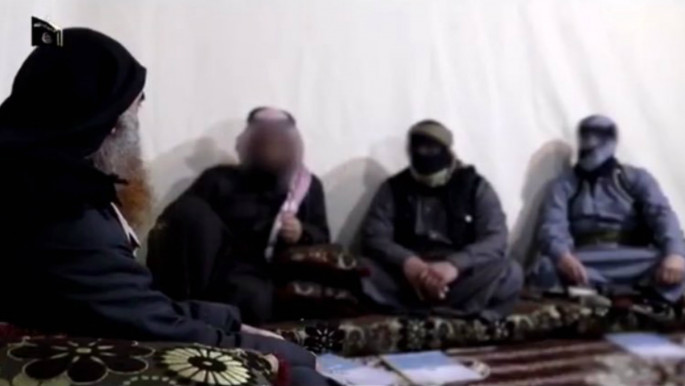 |
|
| Read also: The Iraq Report: IS leader Baghdadi returns as Iraq seeks regional role |
"Tourist projects are in progress from the rugged mountains of Kurdistan in the north to southern Iraq's marshes, a vast wilderness of reeds and tangled waterways where the 20th century has made few inroads," Reuters reported in 1978.
This was part of a large multi-million-dollar programme by Baghdad aimed at attracting up to 500,000 tourists a year. They invested in tourism studies and a hotel training school, which included sending students to Arab countries and Europe to learn about the industry, and planned to publish 100,000 tourist guides in various languages as "part of a campaign to polish the country's image abroad."
This was setback as a result of the Iran-Iraq War, which Baghdad began in September 1980 with a large-scale invasion of Iran's border regions.
The Iraqi regime sought to downplay the seriousness of the war to its people and the world. For example, when the first Iranian missiles hit the capital early in the war the regime initially tried to downplay them by perversely claiming the explosions were the result of car bombs set off by "Iranian terrorists". They quickly backtracked on this claim since it raised questions about Iraq's internal security.
Despite such efforts to project calm and security any major effort to attract tourism was put on the back-burner until the end of the war.
While the war ultimately did kill about a million on both sides most of Iraq's major cities remained largely unharmed. Over a million Egyptian guest workers lived in the country throughout that decade.
Baghdad was largely unaffected directly by the war, especially compared to Tehran, whose residents lived in fear of Iraq's infamous Al-Hussein Scud missile attacks for years. As Washington Post contributor Christopher Dickey observed in 1985, "The only visible damage suffered by Baghdad has been the destruction of an empty set of bleachers in a soccer stadium hit by an Iranian missile."
There were also few blackouts and no curfews. This was in stark contrast to the southern port city of Basra, which was damaged in heavy fighting later in the war, including the city's Sheraton Hotel, given its close proximity to the frontlines and Iran's determination to capture the strategic city.
 |
|
In August 1988, just ahead of the ceasefire agreement that finally brought that lengthy war to an end, Baghdad abolished the state tourism directorate and ordered the sale of major hotels across the country, including in the capital, the country's second city Mosul and Basra.
This was a clear effort on the part of the regime to stimulate the economy after almost a decade of continuous war.
It was also a radical departure from Baghdad's aforementioned effort in the late 1970s, which were completely organised by the regime that completely controlled the prices of hotels and restaurants and even had checks to prevent tourists from falling victim to profiteering.
Yet another crisis arose that jeopardised this project.
Iraq's invasion of Kuwait in August 1990 and the subsequent 1991 Persian Gulf War brought tourism across the Middle East to a complete standstill for several months. It was also the death knell for any chance of Iraq establishing a significant tourism sector as the country's economy and infrastructure was setback decades in mere weeks.
 |
Iraq's invasion of Kuwait in August 1990 and the subsequent 1991 Persian Gulf War brought tourism across the Middle East to a complete standstill for several months |  |
The United Nations subjected Iraq to an internationally-backed embargo that crippled the Iraqi economy and saw the country reduced to a pariah state.
Still, in those years of isolation, the regime still tried to attract tourists into the country.
Sirwan Abdel-Khader Saeed was the chairman of Iraq's Tourism Board in 1995. He desperately sought to revitalise the country's tourism sector to bring hard currency into the country. In March 1995, he held a conference in Baghdad to try and convince foreign diplomats in the country to encourage tourism from their countries.
In the 1990s, tourism to Iraq declined from over one million visitors to the country per year to a comparably paltry few thousand. People like Saeed hoped that once sanctions were finally lifted on Iraq the numbers would increase. Ultimately, the sanctions remained in place until the toppling of the regime by the 2003 Anglo-American invasion.
Tourists wanting to visit Iraq in the 1990s could not do so due to the ban on flights there. Instead, they would have to take a long car ride through the desert from neighbouring Jordan.
"Politics and tourism go hand in hand here; when there's a crisis tourism falls asleep," was how Falah Abdul Hadi, a gift shop owner in the ancient city of Babylon, summed up the situation to Reuters in 1998.
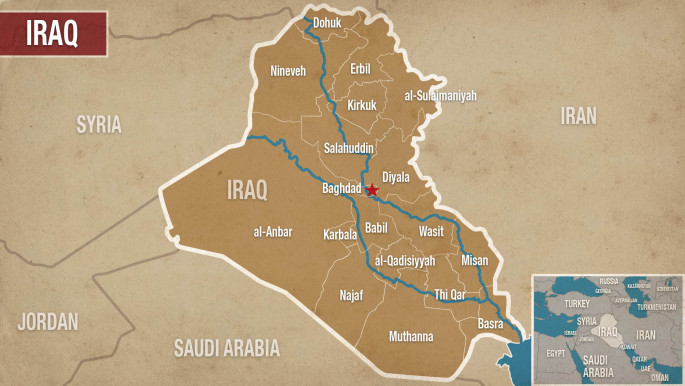 |
|
In July 1998, Iraq reopened its border with Iran and permitted 12,000 Iranian Shia pilgrims to visit the shrine cities of Najaf and Karbala in the south each month. This briefly breathe new life back into Iraq's almost non-existent tourism sector at that time since the Iranian visitors spent their money "on hotels, food and sacred souvenirs."
At that time the Iranian pilgrims paid a $350 fee that included accommodation and other expenses for their week-long trips. This was a hugely substantial sum of money in Iraq at that time, well over a year's salary for an average Iraqi government employee.
 |
Politics and tourism go hand in hand here; when there's a crisis tourism falls asleep |  |
In 2000, however, a dispute between Baghdad and Tehran saw this come to an end, losing Iraq an estimated $4 million a month.
Following the ousting of Saddam Hussein in 2003 Iraq became gripped by violence for several more years in the ensuing Iraq War. The country became synonymous with terrorism and violence in the eyes of most outsiders.
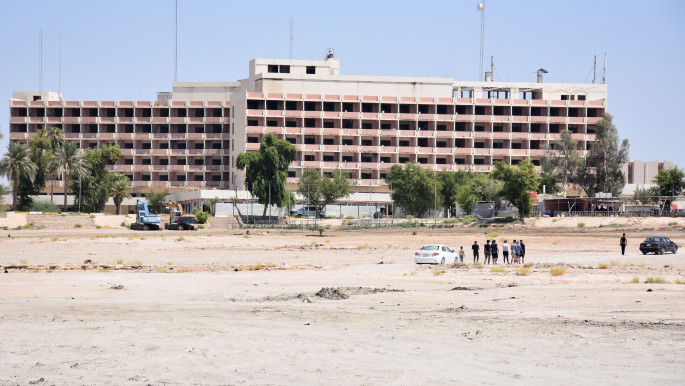 |
|
| An abandoned hotel resort by Lake Habbaniyah, which was once a tourist hotspot, popular with wealthy newlyweds [Getty] |
While there was some talk about finally stabilising the country and attracting tourists such efforts did not take off since people were dissuaded by the widespread instability.
Ahmed al-Jobori dreamed of opening his country up for tourism, envisioning a marketing campaign in which visitors would be welcomed to 'Where It All Began', a clear reference to Iraq's ancient history.
The violence of the Iraq War, however, saw him postpone his dream and actively discourage people from visiting Iraq.
"I understand all the wanting to have an adventure, but Iraq could be a one-way trip," he lamented in 2004. "This is just not a place for tourists."
"Tourism can be our river of gold," he added. "Our oil will eventually run out but for better or worse, there will always be people who want to see Iraq."
 |
Following the ousting of Saddam Hussein in 2003 Iraq became gripped by violence for several more years in the ensuing Iraq War. The country became synonymous with terrorism and violence in the eyes of most outsiders |  |
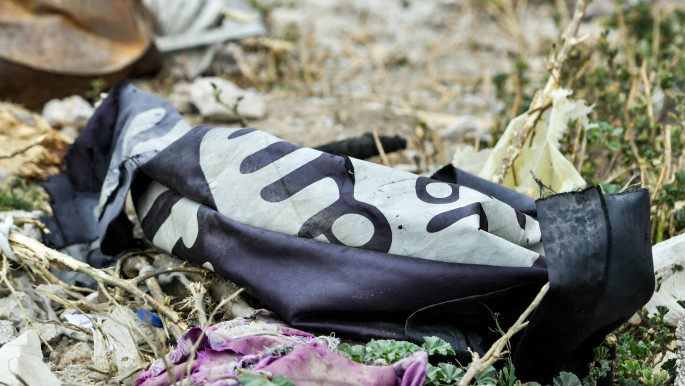 |
|
| Read also: Who did what to defeat the Islamic State group |
The autonomous Iraqi Kurdistan region, on the other hand, remained largely stable throughout the Iraq War. It sought to attract foreign tourism and investment by branding itself as 'the other Iraq' in a clear attempt to distance itself from the violence that plagued the country.
In the early 2010s, this yielded some positive results. The Kurdistan region rapidly developed economically at this time and became very prosperous. In 2013, taxi drivers in Erbil used to boast to visitors that the autonomous region's capital had more hotels than Paris.
Visiting the Kurdistan region was, and remains, much easier than the rest of Iraq since the autonomous authorities have ensured to maintain a cheap and liberal visa system to attract visitors. Visas for tourists to Iraq, by comparison, are notoriously expensive and difficult to come by for many visitors to the country.
The war against the Islamic State group [IS] once again dissuaded tourists from coming to the country. After the group's caliphate was largely destroyed in Iraq by the end of 2017 some went so far as to say Iraq has returned to a period of stability and relative normalcy not seen since the late 1970s.
It's against this backdrop that Iraq is once again taking an opportunity to try and finally realise the full potential of its tourism sector and is willing to invest tens-of-millions to do so.
Given this history, however, one cannot be more than cautiously optimistic that Iraq can finally pull it off this time around.
Paul Iddon is a freelance journalist based in Erbil, Iraqi Kurdistan, who writes about Middle East affairs.
Follow him on Twitter: @pauliddon
